The BEST episodes directed by Ashley Gething
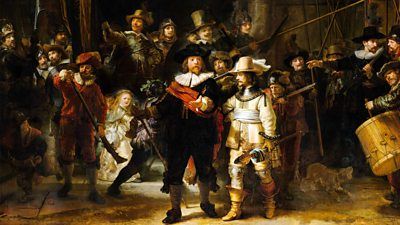
#1 - The Triumph of Art
Civilisations (2018) - Season 1 - Episode 5
Think Renaissance and you think Italy. But in the 15th and 16th centuries the great Islamic empires experienced their own extraordinary cultural flowering. The two phenomena did not unfold in separate artistic universes; they were acutely conscious of, and in competition with, each other and mutually open to influences flowing both ways. The fifth film in Civilisations goes east and west with Simon Schama: to Papal Rome but also to Ottoman Istanbul and Mughal Lahore and Agra, revealing those connections and rivalries, and examining how the role of artists from the different traditions of West and East developed in the years that followed the Renaissances. That rivalry unfolds most spectacularly over the creation of domes - in Ottoman Istanbul the great engineer-architect Mimar Sinan builds the light-flooded Süleymaniye mosque, while at the same time in Rome Michelangelo designs the great dome over the St Peter’s Basilica. The fate of the hero-artist, seemingly touched by God, with the gift of making visual miracles, diverged in east and west. In Europe, artists such as Benvenuto Cellini with his sculpture of Perseus with the Head of Medusa could lay claim to sovereignty over the world of art. As the century turned, the greatest European artists like Caravaggio, Velasquez and Rembrandt shook off decorum and turned muscular, earthy, and theatrical. Meanwhile in the East, Mughal art, in mausoleums like the I’tima¯d-ud-Daulah became ever more refined, poetic and exquisite.
Watch Now:Amazon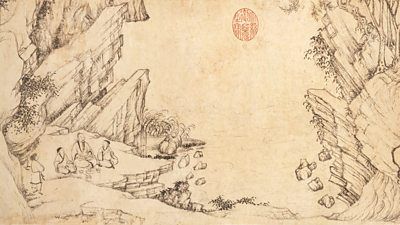
#2 - Picturing Paradise
Civilisations (2018) - Season 1 - Episode 3
Simon Schama examines one of our deepest artistic urges: the depiction of nature. Simon discovers that landscape painting is seldom a straightforward description of observed nature; rather it’s a projection of dreams and idylls, as well as of escapes and refuges from human turmoil; the elusive paradise on earth. Simon begins in the 10th century, in Song dynasty China. The Song scrolls are never innocent of the values of that world: the landscapes depict immense mountains projecting imperial authority. But as that authority was threatened and overwhelmed, majestic mountains are represented in geological turmoil, writhing and heaving. Imagined paradises in Islamic and Western art are often responses to loss and absence. But paradise could be recovered in the country villas of the Renaissance. Simon goes to the miraculously beautiful Palladian house of Daniele Barbaro in the Veneto, with murals painted by Paolo Veronese to contemplate the world of the cultivated country gentleman. It was in the cooler climate of northern Europe that landscape came into its own as a distinctive type of art. Simon looks at the works of the Northern Renaissance in Germany and the Netherlands, where emerging states sought expression of identity through depiction of their natural worlds. Simon ends in America where the landscapes of America are as expansive as the landscapes of Holland were confined, but there too, in the numinous photography of Ansel Adams, a kind of earthly paradise is revealed and a sense of nationhood is expressed in the natural world.
Watch Now:Amazon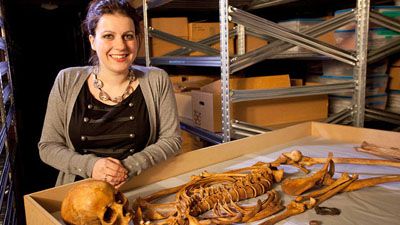
#3 - The Viking Sagas
BBC Documentaries - Season 2011 - Episode 93
Hundreds of years ago in faraway Iceland the Vikings began to write down dozens of stories called sagas - sweeping narratives based on real people and real events. But as Oxford University's Janina Ramirez discovers, these sagas are not just great works of art, they are also priceless historical documents which bring to life the Viking world. Dr. Ramirez travels across glaciers and through the lava fields of Iceland to the far north-west of the country to find out about one of the most compelling of these stories - the Laxdœla Saga.
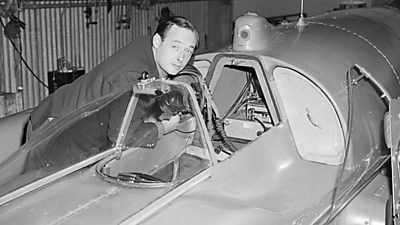
#4 - Donald Campbell: Speed King
BBC Documentaries - Season 2013 - Episode 55
Using rare archive and first hand testimony from those who knew him intimately, this film explores the life of Donald Campbell, one of Britain's most compelling but doomed heroes. Despite his triumphs, setting several world speed records on land and water, he remained a haunted man. His father Sir Malcolm Campbell had been a prolific record-breaker but an indifferent parent and all his life Donald felt driven to emulate his father. But instead of endless success his career was dogged by bad luck, bad weather and the growing apathy of the British public. In 1967 he took his Bluebird boat to Coniston in the Lake District for an attempt on the water speed record. With the eyes of the world upon him, he crashed and was killed instantly, his body and boat lost for thirty years.Told from the point of view of the children themselves, this one-hour documentary offers a unique perspective on the nation's flagging economy and the impact of unemployment, foreclosure and financial distress as seen through the eyes of the children affected.
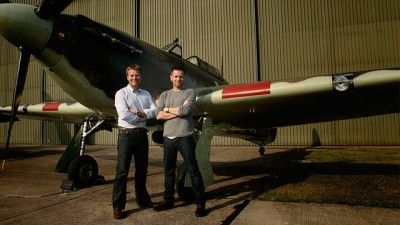
#5 - The Battle of Britain
BBC Documentaries - Season 2010 - Episode 127
Seventy years on, brothers Colin and Ewan McGregor take viewers through the key moments of the Battle of Britain, when 'the few' of the RAF faced the might of the Nazi Luftwaffe. As they fly historic planes, meet the veterans, explore the tactics and technology, Colin and Ewan discover the importance of the Battle and the surviving legacy of the 1940's campaign for the modern RAF.
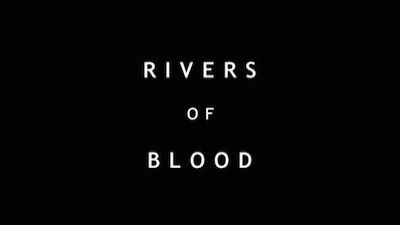
#6 - Rivers of Blood
BBC Documentaries - Season 2008 - Episode 71
A documentary looking at Enoch Powell's Rivers of Blood speech on the 40th anniversary of its delivery. The documentary charts sacking from the Cabinet of Edward Heath after the controversial speech which predicted violence on the streets of Britain and which quoted Roman poet Virgil's prophesy: "I see the Tiber foaming with much blood". The documentary also examines the effect of the speech on Britain's immigration policy.
#7 - Blitz: The Bombing of Coventry
BBC Documentaries - Season 2009 - Episode 156
On 14th November 1940, the Luftwaffe launched the most devastating bombing raid so far on Britain. The target was Coventry, deep in the heart of England. In a 12-hour blitz, the Luftwaffe dropped thousands of tons of bombs. Three-quarters of the city centre was devastated, including the ancient cathedral. The Nazis coined a phrase - 'to Coventrate' - to describe the intense destruction. It was a baptism of fire for Coventry and Britain. For years, the government feared that aerial bombardment could destroy civilian morale. In Coventry, those fears were tested, and in the immediate aftermath of the blitz the evidence was not encouraging. Panic and hysteria gripped the city, and half of Coventry's population fled. However, within weeks - and contrary to all expectations - the city revived. Factories were soon turning out aircraft parts which would be used to avenge the attack on Coventry. The RAF studied the Nazi bombing techniques and perfected the art of 'Coventration'. In Dresden, Hamburg and Berlin, the Nazis reaped the whirlwind they had sown in their devastating attack.
#8 - Richard III: The Princes in the Tower
Channel 4 (UK) Documentaries - Season 2015 - Episode 22
Did Richard III really kill his nephews so that he could be king? A stellar cast of experts, including David Starkey and Philippa Gregory, endeavour to finally uncover the truth.